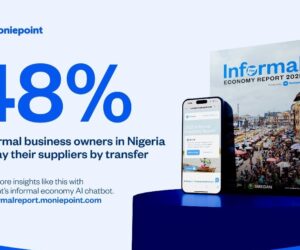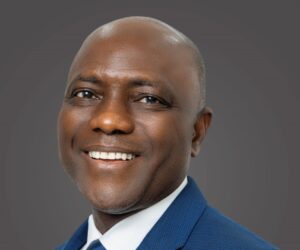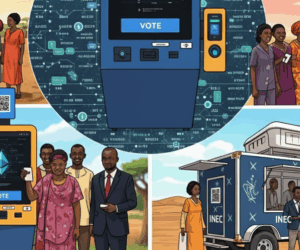Fintech startups in Nigeria must determine their business model and then match it to one of several central bank licences. Key categories include Payment Solution Services, Mobile Money Operator, Switching and Processing, and Regulatory Sandbox licences.
Switching and Processing licences carry some of the steepest entry requirements. Startups must demonstrate ₦2 billion in shareholder funds and escrow another ₦2 billion with the CBN. This is refundable only after final approval.
The application process also demands audited financials, corporate documentation, detailed business plans, KYC/AML policies, and external certifications.
The Payment Solution Service Provider (PSSP) licence, by comparison, requires ₦100 million in capital, but still entails rigorous documentation and face-to-face inspections. Even so, many startups report that obtaining the PSSP licence takes three to six months just for final approval, according to Koriat Law.

CBN processing times vary in official guidance, but practical experience tells a slower story.
“Getting licenced is not easy anywhere, at least in the US and Nigeria,” said Akinsola Jegede, founder of VitalSwap. “But there are guidelines that helped us understand the requirements with US licencing and systems to submit applications, documentation and feedback. That level of structure is missing here.”
The licencing maze imposes significant capital, compliance, and time demands. Startups face long waits, intricate documents, and financial lock-in before they can operate.
Switching and processing licences often take 6 to 8 months, while PSP and MMO licences can stretch between 5 to 18 months, depending on documentation quality, clarity of requirements, and CBN’s workload.
Many startups struggle with this delay. One fintech founder reportedly took a year to renew its payment licence; others hesitate at the ₦100 million capital requirement, locked away unproductively for months.
However, the CBN has sought better clarity. A government compendium now lists licence types and their specific documentation requirements more transparently.
The Business Facilitation Act of 2023 also mandates default approvals when agencies fail to respond within specified timeframes. The central bank launched the Licencing, Approval and Other Requests Portal (LARP) for Microfinance Bank applications, a web-based system designed to replace manual submissions.


In case you want to bypass, regulators do enforce compliance.
Recall that in 2023, the CBN fined unlicenced fintech operators ₦1.3 billion and froze accounts. The SEC shut down 12 unregistered investment platforms, seizing ₦500 million in assets. The FCCPC removed 88 non-compliant loan apps from app stores.
Startups on pause
When Eyowo, a fledgling neobank, received a clean compliance audit from the CBN in March 2023, the team believed the road ahead would flow smoothly. Instead, the next months morphed into a life raft of uncertainty. CBN auditors flagged areas needing stronger capitalisation, structured KYC, and enhanced risk controls. The feedback prompted the fintech to halt new user registrations entirely – “until July 1” – while staff implemented urgent fixes.
The worst followed next.
Eyowo’s operating licence, tied to its microfinance bank arm, was revoked. The founders submitted a 52-page appeal, strengthened capital reserves, and cut headcount by about 11 per cent.


The CBN eventually issued approval-in-principle, but only after the company agreed to re-incorporate as “Entrepreneur MFB.” Even after the name change, Eyowo remained in limbo.
Banking partners held back integration, citing a lack of formal confirmation. A change in CBN leadership created fresh doubts: would the fintech still meet shifting regulatory expectations? It took momentum-sapping follow-ups over many months before Eyowo secured final clarity, nearly a year from audit to stability.
Eyowo’s ordeal is not an isolated case. In 2020, Techcabal reports a fintech representative at a regulatory roundtable lamenting how applying for a licence could feel like draining capital into thin air.
The startup had to lock ₦100 million just to renew its payment services licence, and it took around a year to first secure it. Some founders who explain that banks insist on CBN approval before integration described the licencing process as steep, opaque, and deterrent to innovation.
These cases distort innovation timelines. Delayed licencing stalls product launches for fintech startups, and investor trust suffers. Investors often expect traction within a quarter, not a year lost to bureaucracy.
New startups enter the market with muted speed, while incumbents or well-funded players, such as Flutterwave, go through smoother processes. Flutterwave quietly secured its switching and processing licence in 2022, gaining operational autonomy that smaller firms still lack.
Some startups work around the delays. Paga, for example, spent two years negotiating a USSD code approval with NCC, a process that dwarfed product development cycles. But the company has since expanded significantly, becoming a dominant payment platform in Nigeria while advocating for regulatory reforms.
Meanwhile, other ventures bypass federal licencing by leaning on state guidelines. In Lagos, certain firms obtain licences under the Money Lender Law via the Ministry of Home Affairs, a much faster local route. Yet these state paths often skirt or conflict with federal mandates, increasing legal risk.
The result is a market where “first mover” isn’t always the most nimble. Licencing delays breed caution among investors seeking speed and predictability. Founders often opt first for partnerships with licensed entities rather than waiting.
Analysts underscore that unless regulatory timelines become clearer and fairer, innovation risks stagnating.


“We have to heavily depend on licenced partners to complete transactions on our behalf,” Jegede explained. “This comes after rigorous vetting on both sides. Although it has not affected customer trust, we are limited in the type of products we can offer to customers. It also leads to increased third-party costs,” he adds.
For a company whose major market is Nigeria, that dependency has reshaped strategy. “It is definitely a roadblock that has led us to focus our business more towards US customers,” he added.
Suggesting a way forward
Every month, a licence application stalls in Abuja, and the cost compounds for startups. Take Nigeria’s payment service provider (PSP) licence for example: the Central Bank of Nigeria (CBN) officially lists timelines of six to twelve months, but industry insiders say it can stretch to 18–24 months in practice.
That delay doesn’t just affect a founder’s launch date; it means losing out on potential revenues, investor confidence, and market share. A small fintech projecting to process ₦500 million in transactions within its first year may forfeit as much as ₦40–₦60 million in transaction fees if the process drags by a year.
The ripple effects are wider. Nigeria still has over 38 million adults (36% of the population) excluded from formal financial services, according to EFInA. Delayed licensing slows the roll-out of innovative solutions meant to reach them, whether it’s savings apps for market women or cross-border remittance platforms for SMEs.


Compare this to Kenya, where the Central Bank issues a Payment Service Provider licence in about 90–120 days and has recently licenced over 20 digital lenders within 12 months.
Ghana, too, has cut approval windows to six months and publishes a clear list of licenced firms online. South Africa’s Financial Sector Conduct Authority (FSCA) offers sandbox participation within 60 days, helping startups test products while awaiting full authorisation.
The result is competitive imbalance. Startups in Kenya and South Africa can hit the ground running faster, while Nigerian founders often burn investor capital waiting.
In a market where mobile money transactions hit ₦28 trillion in 2024, even a six-month delay can mean missing out on billions in potential transaction flow. For global investors, this breeds hesitation: why back a Nigerian startup with a two-year licencing lag when its Ghanaian counterpart can be live in months?
The way forward is not a mystery. Nigeria has experimented with a regulatory sandbox, but it needs scaling. The CBN can adopt a tiered licencing approach, granting provisional approval in 90 days subject to capital and compliance milestones, rather than holding firms in limbo.


Publishing timelines and approval status online, as Ghana does, would build transparency. More importantly, regulators must treat startups as partners in achieving financial inclusion goals, not adversaries.
“There are about a million types of licences to do anything fintech. To collect, to pay, to transmit,” Jegede said.
With over 200 fintech startups already operating and venture funding into Africa hitting $3.5 billion in 2023, streamlining licencing is less about bureaucracy and more about unlocking growth.
Until that shift happens, every delay is more than just paperwork. It’s a farmer without access to digital credit, a trader still handling cash, and a startup losing ground to its East and Southern African peers.








